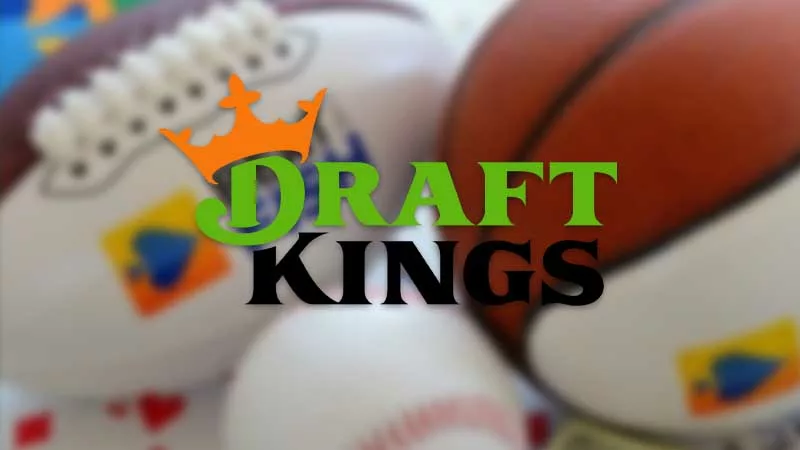
Online sports betting ads tend to err on the side of cheeky, but some brands take things a little too far. In the case of DraftKings’ latest transgression, it was a lot too far, however, as the online betting brand advertised a 9/11 themed promotional bet, tagged as the “Never Forget” parlay.
Of course, it has ignited a wave of outrage across the internet. While DraftKings’ has apologized, is it too late to reverse the damage that has been done to its reputation by the offensive campaign?
Table of Contents
The Controversial “Never Forget” Bet
DraftKings, one of the prominent players in the sports betting industry, came up with a promotional parlay bet on the 22nd anniversary of 9/11. The bet, named the “Never Forget” parlay, required users to bet on three New York City based teams – the Mets, Yankees, and Jets – to each win on September 11th, 2023.
Obviously, the promotional bet failed to sit well with the public, as it came across as an audacious attempt to capitalize on a national tragedy. As is the case with all online outrage, the backlash was swift, and DraftKings withdrew the promotion immediately.
Immediate Backlash and Public Outrage
As soon as the promotional offer was spotted by users, screenshots started circulating on social media. The public deemed it as a tone-deaf attempt to profit from a national tragedy, leading to an uproar across the internet.
The company’s apology, which followed, was seen as more of a casual acknowledgment of the error rather than a genuine expression of remorse.
We sincerely apologize for the featured parlay that was shared briefly in commemoration of 9/11. We respect the significance of this day for our country and especially for the families of those who were directly affected.
— DraftKings News (@DraftKingsNews) September 11, 2023
The incident once again highlighted the importance of sensitivity and decency in the business world, especially when it comes to commemorating significant dates in American history.
A Lesson Learned?
Looking at the incident from an analytical perspective, it is clear that the company made a grave error in judgment. The promotional bet was a glaring example of insensitivity and a lack of understanding of the significance of the date in question. It not only tarnished the company’s image but also raised questions about its ethical standards.
In the aftermath of the incident, DraftKings faced intense criticism not only from the public but also from within the industry. The company’s apology did little to mitigate the damage, and the incident will likely serve as a cautionary tale for other businesses in the future.
While the incident has undeniably tarnished DraftKings’ reputation, it is important to note that the company still remains one of the major players in the sports betting industry. It will be interesting to see how the company navigates its way through the aftermath of the controversy and what steps it takes to rebuild its image.
Other Examples of Insensitive Sportsbook Ads
Recently, we’ve seen several gambling companies face backlash for advertisements which have been deemed offensive and insensitive. These ads, ranging from mocking religious figures to perpetuating stereotypes, have sparked public outrage and raised important questions about the ethics of advertising in the gambling industry.
PointsBet: Insulting Australians or Celebrating Culture?
One of the most complained-about gambling ads of 2022 was an advertisement for online gambling company PointsBet. Starring NBA legend Shaquille O’Neal and comedy duo the Inspired Unemployed, the ad received a significant number of complaints for seemingly mocking Australians.
The use of exaggerated Aussie accents and local slang was seen as offensive and insulting to Australians, particularly young men. However, the Ad Standards Community Panel determined that the ad was not discriminatory and did not breach advertising industry codes.
They argued that the ad featured self-deprecating humor that most Australians would interpret as celebrating their culture rather than ridiculing it.
While the panel’s decision may have alleviated concerns for some, the controversy surrounding PointsBet’s ad highlights the fine line between humor and offense in advertising.
Boylesports: Mocking the Crucifixion?
In another instance of offensive advertising, gambling company Boylesports faced backlash for an ad that ran over Easter. Featuring a hand nailed to a piece of wood against a desert backdrop, the strapline said “nailed on bonus.” The text accompanying the image made reference to Jesus Christ and the crucifixion, sparking accusations of religious mockery.
One recipient of the email promotion lodged a complaint with the Advertising Standards Authority (ASA), stating that the ad was offensive and mocked the Christian religion. Boylesports defended the ad, claiming it was a satirical joke referencing the sporting rivalry between England and Ireland, as well as recent Irish rugby victories and Brexit.
Paddy Power: Stirring Up Anti-English Sentiments?
Paddy Power recently faced criticism for an ad that ran ahead of Ireland’s Six Nations match against England, referencing the British occupation of Ireland. The ad received six complaints, with individuals accusing it of being racist, offensive, and anti-English in sentiment.
Paddy Power defended the ad, using similar claims that it was satire of Ireland and England’s sports rivalry. However, the Advertising Standards Authority for Ireland (ASAI) upheld the complaints, stating that the historical context between the countries made the ad likely to cause offense.
These incidents highlight the importance of considering the historical and political implications of advertising messages, especially when they touch on sensitive subjects. Advertisers, particularly in the gambling market where marketers make an effort to be provocative, must be mindful of the potential impact their ads may have on different communities.










